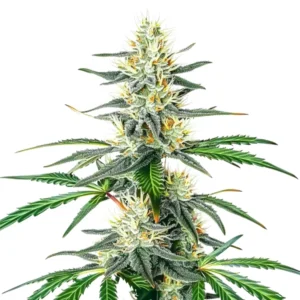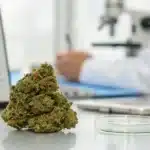
Can You Donate Blood If You Smoke Marijuana? What You Need to Know
Blood Donation Guidelines and Marijuana Use
General Blood Donation Requirements
When you decide to donate blood, you follow clear criteria set by local blood centers that ensure your health is prioritized and every donation is valuable. Every donor meets minimum standards regarding age, weight, and overall health, and the process starts with a thorough check of vital signs along with a detailed review of your medical history. Clinics work actively to verify that you are in optimal condition, and every step is designed to support your contribution to saving lives while safeguarding both you and the recipient.
Every center maintains a detailed list of requirements that you fulfill before scheduling your donation, and this process includes confirming that you remain free of infections and that your vital functions are stable. The registration process involves answering a series of direct questions about your current health and habits, ensuring that each donor is fully prepared. This organized system builds confidence among donors and promotes a strong commitment to community health.
Recommended Strains
Acapulco Gold
|
|
THC | 15% - 19% (Medium) |
|
|
Type | Feminized |
|
|
Yield | Medium |
|
|
Phenotype | 30% Indica / 70% Sativa |
Afghan Kush x Blueberry
|
|
THC | 18% - 20% (Medium) |
|
|
Type | Feminized |
|
|
Yield | Low |
|
|
Phenotype | 70% Indica / 30% Sativa |
Policies Regarding Substance Use
Many facilities update their policies concerning substance use as local laws and community behaviors evolve. Blood banks continuously refine their rules to guarantee a safe donation environment where any active substances in your system do not interfere with the collection process. Medical teams work hard to enforce these strict guidelines, maintaining a focus on clear, direct instructions that support donor safety and public health while preserving a high-quality blood supply.
Policy manuals clearly outline the required period of abstinence before donation, ensuring that you arrive at the appointment in the best possible condition. These standards are communicated clearly so you know exactly what steps to follow, and the guidelines serve to protect both your well-being and that of the individuals who receive blood. This proactive approach creates an environment where every donor actively contributes to a secure, efficient donation process.
Timeframe Recommendations
Medical experts advise that potential donors plan their donation schedule around a designated waiting period after using cannabis. Centers often implement a strict interval, typically at least 24 hours, so that your body has ample time to clear any residual substances. Following this interval helps ensure that you meet the necessary safety standards and engage in a donation process that is both efficient and risk-free.
Some clinics recommend even longer waiting periods for frequent users and offer practical advice to help maintain healthy routines before donation. Detailed information about these timelines is provided to support your active participation, and clear instructions help you understand how these waiting periods improve the quality of the donation. This guidance reinforces the importance of planning and self-care as you prepare for your contribution.

Promos & Deals
Impact on Blood Components
Research indicates that regular cannabis use might affect various blood components such as the cells responsible for oxygen transport and immune defense. While occasional use typically does not compromise blood quality, heavy or frequent usage may cause temporary changes in cell performance that need careful monitoring. Laboratories perform active testing to ensure that every donation upholds the highest quality standards, preserving the safety and effectiveness of the blood supply.
Medical teams use precise evaluations to examine your blood components, ensuring that all samples meet strict requirements. These active protocols help you adjust any habits if needed and provide detailed feedback that reinforces safe practices. This comprehensive review process supports continuous monitoring and reassures donors of the high standards maintained during each donation session.
Health Assessments for Donors
Before donating blood, centers conduct comprehensive health assessments that include carefully designed questionnaires and brief physical examinations. Medical staff record your health history in detail and actively review your lifestyle habits, providing you with immediate feedback on your readiness to donate. This structured evaluation guarantees that every donor receives a personalized experience geared toward maintaining the safety of the blood donation process.
Clinicians verify each aspect of your well-being during these active evaluations, focusing on critical personal details that support a secure donation environment. You provide accurate information about your health and habits, and the process is designed to be as transparent and straightforward as possible. This detailed approach makes sure that every step is clearly communicated while actively engaging you in the donation process.
Temporary vs. Permanent Deferrals
Health centers classify deferrals as temporary or permanent based on your current health and recent lifestyle choices. A temporary deferral allows your body a specific period to recover and re-establish an optimal condition for donation. These measures protect the safety of the blood supply by ensuring that each donation comes from a donor in their best health, and every guideline is followed to maintain high standards.
Medical experts evaluate your health history and daily habits to determine if a deferral is necessary. You receive prompt and clear information on the reasons behind any deferral, along with practical steps to enhance your eligibility in the future. This active, transparent system helps you plan for a safe donation once you have met all the required criteria.
Summary of Medical Guidelines
Medical authorities design detailed guidelines that incorporate the latest research on substance use and donor safety. Updated criteria reflect new scientific findings and regulatory changes that help ensure a secure donation process. These guidelines support every donor step-by-step and promote a high level of trust, ensuring that all procedures are transparent and efficient.
Clinicians compile these guidelines into clear, direct instructions that you can follow as you prepare for each donation. The materials emphasize practical steps like refraining from substances for a set period and maintaining general well-being. This active protocol is central to ensuring a safe and consistent donation process while keeping all participants well-informed.
Legal Restrictions and Donor Rights
Local legal policies and regulations shape the practices of blood donation centers by enforcing standards that reflect both state and federal guidelines. Officials work to safeguard donor rights while ensuring that every donation adheres to strict legal requirements. Clear procedures help support a secure system where your personal data and health information are handled with care and respect.
Officials implement direct measures to protect your information and ensure respectful treatment throughout the donation process. These transparent procedures clarify how legal mandates affect eligibility, and every donor benefits from easily accessible, accurate information. This system fosters confidence while reinforcing active participation in maintaining high standards for donation safety.
Policy Differences by Region
Blood donation regulations vary across regions and local jurisdictions, with each center operating under guidelines that align with regional laws. Local policies provide tailored instructions that meet specific community standards, helping you navigate the process based on where you live. Detailed regional updates ensure that every donor understands the criteria and works within the specific framework of their local center.
Regional centers continuously update their policies as new legislation is passed and community behaviors evolve. Clear, concise information provided by these centers helps you prepare effectively and adjust your approach to meet local requirements. This transparent exchange of information supports a seamless and consistent donation experience, regardless of regional differences.
Pre-Donation Health Check Guidelines
You prepare for your blood donation by following a strict pre-donation health routine that emphasizes overall wellness. Clinics advise maintaining a balanced diet, proper hydration, and engaging in light exercise before your appointment so that you are fully prepared. Detailed recommendations include monitoring sleep quality, stress levels, and general physical condition to ensure that every part of your body is ready to support the donation process.
Centers supply a comprehensive checklist of actionable steps leading up to your donation. Following these recommendations actively improves your readiness and enhances the quality of your blood sample. This holistic approach to health empowers you to participate confidently, knowing that every precaution has been taken to maximize the benefits of your donation.
Managing Disclosure and Privacy
Throughout the donation process, you provide personal lifestyle details, and centers maintain full confidentiality to protect your identity and information. Medical staff ensure that every piece of data remains secure, and their clear communication builds trust as you progress through each stage of the evaluation. Robust data protection systems work continuously to guarantee the security of your records while supporting the overall donation process.
Centers maintain transparent protocols that ensure your personal information is used strictly for evaluation purposes and remains confidential. Every measure is in place to create a supportive environment where privacy is respected, and you feel confident during each step of your donation. This reliable system reinforces the trust that donors place in the blood collection process.
Seeking Professional Medical Advice
Before scheduling your blood donation, you consult with healthcare professionals who provide personalized advice based on your specific health history and lifestyle choices. Medical experts offer practical recommendations that help you prepare your body, ensuring that you are in an optimal state to donate. Their clear, direct guidance makes it easier for you to understand and follow the necessary steps before you contribute your blood.
Healthcare providers take the time to review your daily habits and may suggest simple adjustments to improve your overall condition. They deliver straightforward instructions that help you maximize your readiness for donation, creating a productive plan that leads to successful outcomes. This professional support ensures that you remain proactive and informed as you prepare for your donation journey.

FAQs about can you donate blood if you smoke marijuana
Does smoking marijuana permanently disqualify you from donating?
No, smoking marijuana does not permanently disqualify you from donating blood. Centers evaluate your personal health and substance use history to decide on eligibility. Temporary deferrals may apply based on recent cannabis use or other factors, and medical staff focus on ensuring safe donations so that you can contribute again when your health improves.
How long should you wait after marijuana use before donating blood?
You should wait at least 24 hours after using marijuana before donating blood. This period allows your body to clear any residual substances and ensures that you meet the safety standards required for donation. Centers provide clear timelines to promote a secure and efficient process.
What medical conditions related to marijuana use affect donation eligibility?
Certain conditions, such as respiratory issues or complications from heavy cannabis use, can affect your eligibility for blood donation. Centers review your detailed health history and current symptoms to determine if you meet the necessary criteria, ensuring that every donation remains safe for recipients.




















